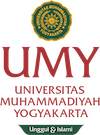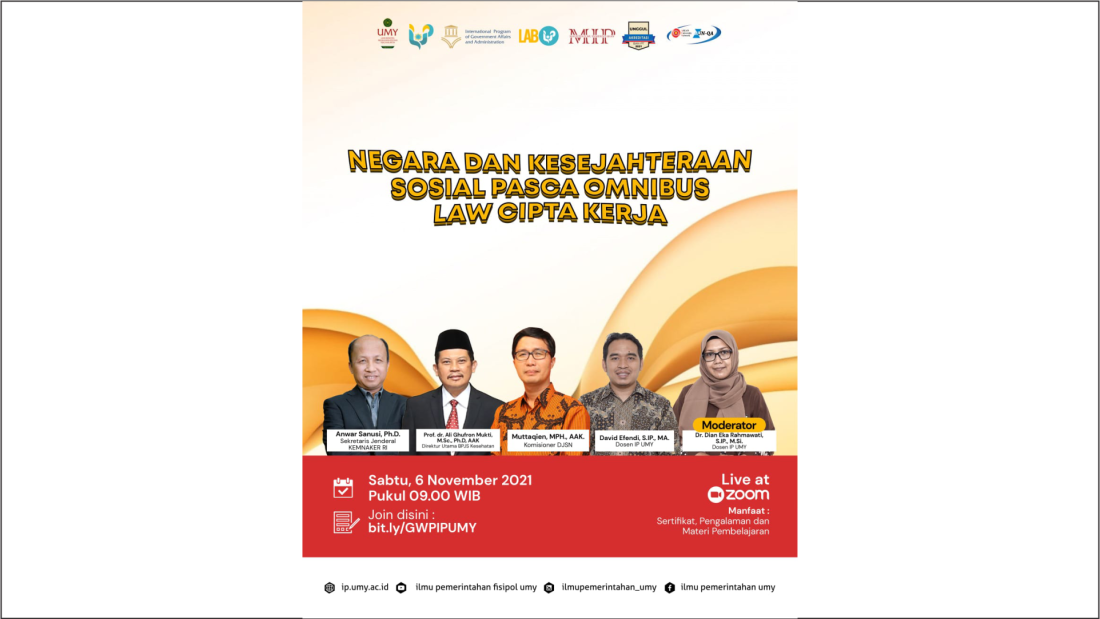Yogyakarta (06/11) – A year after the enactment of the Cipta Kerja law, there are still many pros and cons among the public. From the start, the polemic over this law began after the inauguration of President Jokowi’s second term, who won the 2019 presidential election.
Various attempts were made by the community to reject the ratification of this law. Starting from student demonstrations to the many academic discussions held by academics on campus to discuss the Cipta Kerja law.
Recently the department of Governmental Studies of UMY held a webinar entitled “The Country and the Social Prosperity Post the enactment of Cipta Kerja Omnibuslaw.” Saturday, (06/11).
The speakers in the Webinar are observers and experts in their respective fields, including: Muttaqien, MPH., AAK. (Comissioner of DJSN), Dr. Andi Afdal Abdullah, MBA (The HR and General Director of BPJS Kesehatan), Anwar Sanusi, Ph.D. (Secretary General of KEMNAKER RI) dan David Efendi, S.IP., MA. (The lecturer from the Governmental Studies Department of UMY).
The event, which was held virtually, was opened by Dr. Fate of Ali Mukti as Dean of FISIPOL UMY. In his remarks, Takdir Ali said that this webinar will have a good impact on the way the government goes in the future.
“In this discussion, of course, there are optimists and pessimists, but again we need to have this discussion, to provide suggestions, to fill in the gaps to the government,” he said.
Muttaqien, as the first speaker in the webinar, explained the state and welfare development through social security. According to him, the Constitution has guaranteed social security rights for all citizens.
“Included in the main focus is the vulnerability experienced by informal workers, who are often marginalized compared to informal workers,” he said
While the second speaker, Andi Afdal explained about national health insurance and public health development. He mentioned that one of the state’s efforts to fulfill the social security of its people is by providing health services.
“Health insurance itself has become an integral part of the social security system regulated in the law, so the state must be present,” he said.
Meanwhile, David Efendi in his material explained the dynamics of the ratification of the Omnibus Law and its impact on human welfare and the environment. As a Governmental Studies lecturer at UMY, he explained some of the impacts that occurred after the ratification of the Omnibus Law.
“One year running, Ombinus Law has corrupted reforms from the start, creating inequality injustice and welfare, not taking sides with the middle class, causing ecological damage and loss of ecological balance,” he said.
Finally, Anwar Sanusi in his material conveyed about the state and the welfare of society through the development of Indonesian workers. According to him, one of the challenges of Indonesian workers is productivity. Productivity is an important variable in building community welfare.
“Indonesian labor productivity in ASEAN is still in the fifth position, under Singapore, Brunei, Malaysia and Thailand,” he explained.




